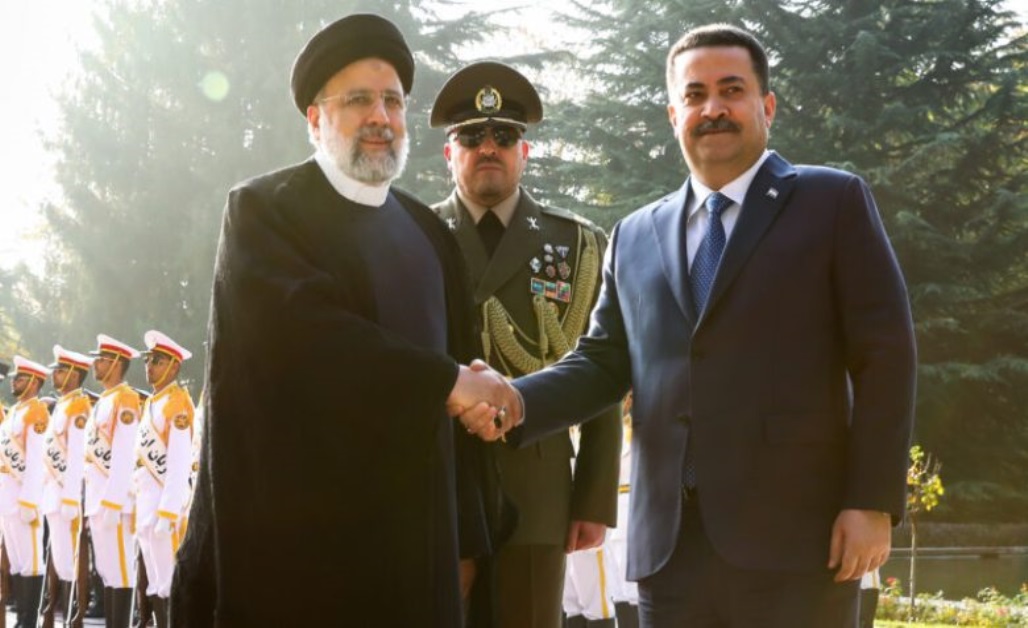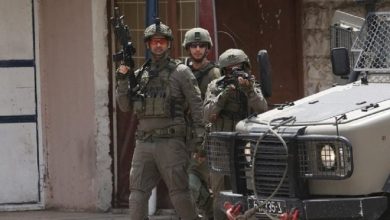Navigating the Iraqi-Iranian Nexus: Complexities, Challenges, and Regional Implications

Watan-A study issued by the European Council on Foreign Relations (ECFR) shed light on the reality of Iraq, Iran, and the disruptions in the Middle East amid escalating proxy battles. According to the study conducted by “Hamzeh Hadad,” since the outbreak of attacks by Hamas and the Al-Aqsa storm in Gaza on October 7, 2023, a dangerous cycle of escalation has erupted throughout the Middle East.
Iran and its proxies, such as the Houthis in Yemen, Hezbollah in Lebanon, and the Iraqi quasi-military forces operating under the umbrella of the Islamic Resistance in Iraq, have exchanged attacks with Israel and the U.S. military presence across the region.
This threatens to escalate into a broader war, especially since Iran’s unprecedented direct attack on Israel on April 13, 2024, in response to Israel’s bombing of the Iranian consulate in Syria on April 1.
Prior to that, Iraqi quasi-military forces launched over 170 attacks on American military bases in Iraq and Syria.
American forces retaliated, with the most controversial being a drone strike on a busy street in Baghdad on February 8.
Similar to the attacks by the Houthis in the Red Sea, Tehran publicly celebrated the accomplishments of its proxies and allies while strongly denying any involvement or support.
Despite the announcement by the Islamic Resistance in Iraq to halt these attacks, the Iraqi government finds itself once again caught between regional and global powers, placing the country under serious threat of being drawn into a broader conflict through Iran’s actions via supported armed groups rather than official government policy.
This would be catastrophic for Iraq. Until October 7, Iraqis had finally begun to feel a sense of normalcy and security after decades of turmoil.
Local concerns shifted from existential issues such as terrorism, occupation, and secession to less violent issues like climate change, corruption, and unemployment.
Iraq even began hosting prominent international conferences in an effort to establish itself as a neutral facilitator for stability dialogue in the Middle East—a goal it has been striving for since 2012.
It’s clear that the Iraqi government and its people do not want to be parties to the U.S.-Iranian confrontation on their soil or a wider regional conflict. However, they also consistently support the Palestinian cause and vehemently oppose Israeli actions in Gaza. This poses significant challenges for the Iraqi government in balancing its response to Iran-linked rogue entities internally and U.S. support for Israeli war externally.
Iraq’s longstanding stance on Palestine is a matter of alignment with Iran, not a result of the latter’s influence, as Iranian influence becomes more pronounced in supporting rogue armed groups in Iraq.
This undermines Iraq’s foreign policy, invites retaliation from U.S. forces, does not serve the goal of Iraqi domestic stability, and does not help the Palestinian cause.
The Iraqi government
Some Iraqi political parties with close ties to Iran exploit violence exchange to pressure for complete U.S. withdrawal from Iraq.
Moreover, U.S. support for Israel in its Gaza war has made it difficult for those in the moderate camp, including current Prime Minister Mohammed Al-Sudani, to justify continued American military presence in Iraq.
Thus, the Iraqi-Iranian relationship transcends mere patron-client or proxy arrangements. This can be traced back to the 2003 U.S. invasion, which paved the way for a new rapprochement between Iraq and its neighbor.
Iran’s influence in Iraq increased further as Tehran sought to protect its strategic interests against U.S. military presence in the country.
On the security front, the Iranian Revolutionary Guard supported armed groups inside Iraq, expanding its network of regional proxies and using them to attack U.S. forces.
At the same time, Iran’s ruling elite showed great interest in Iraqi domestic politics, working to develop its network of allies and partners among the country’s numerous political parties.
The lifting of international sanctions on Iraq following 2003 created economic opportunities for Iran to export goods to the eager Iraqi market.
Iran’s influence in Iraq remains strong, especially in the security realm, where some armed groups have become institutionalized within the state.
However, over the past two decades, Iraqi governments have become more assertive and confident in dealing with Iran.
This increasing political maturity, Baghdad’s position as an economic gateway for Iran, and its role as a mediator between Iran and Gulf states have increased Iraq’s influence, especially under Al-Sudani and his predecessor Mustafa Al-Kadhimi.
Complexities of the Iraqi-Iranian relationship
The study addressed the evolving complexities of the Iraqi-Iranian relationship and the consequences of these dynamics amid the regional instability sparked by the war in Gaza.
The value of the links is not only between Iraqi armed groups and Iran but also between the ruling elites in both countries, including their shared goals and competition over the nature of both the Iraqi state and the regional order, as well as the new, more independent path taken by the Iraqi armed forces.
It urges Europeans to view Iraq as more than just an Iranian proxy or a minor sphere of influence, including to ensure Iraq does not drift into an escalating U.S.-Iranian conflict and wider regional conflict.
In doing so, Europeans must recognize that any policy towards Iraq will not be enduring without achieving a sustainable end to the conflict in Gaza and finding a practical path to securing Palestinian rights, given the current strength of mobilization around this issue in the Middle East.
The war in Gaza is central to the escalation circle and fuels broader conflict. This instability opens up space for radical actors in Iraq to fully align Baghdad with Iranian security interests.
Therefore, according to the study, Europeans need to support the more moderate factions in the Iraqi government to enhance their ability to mitigate the worst trends of Iran-backed militias.
These moderates, centered around Al-Sudani, prioritize Iraqi interests and stability above all. This aligns with European interests in seeing an Iraqi state capable of preventing the country from sliding into a new conflict—a scenario that would fuel wider challenges related to security, terrorism, and migration for Europe, as has been the case for a long time.




